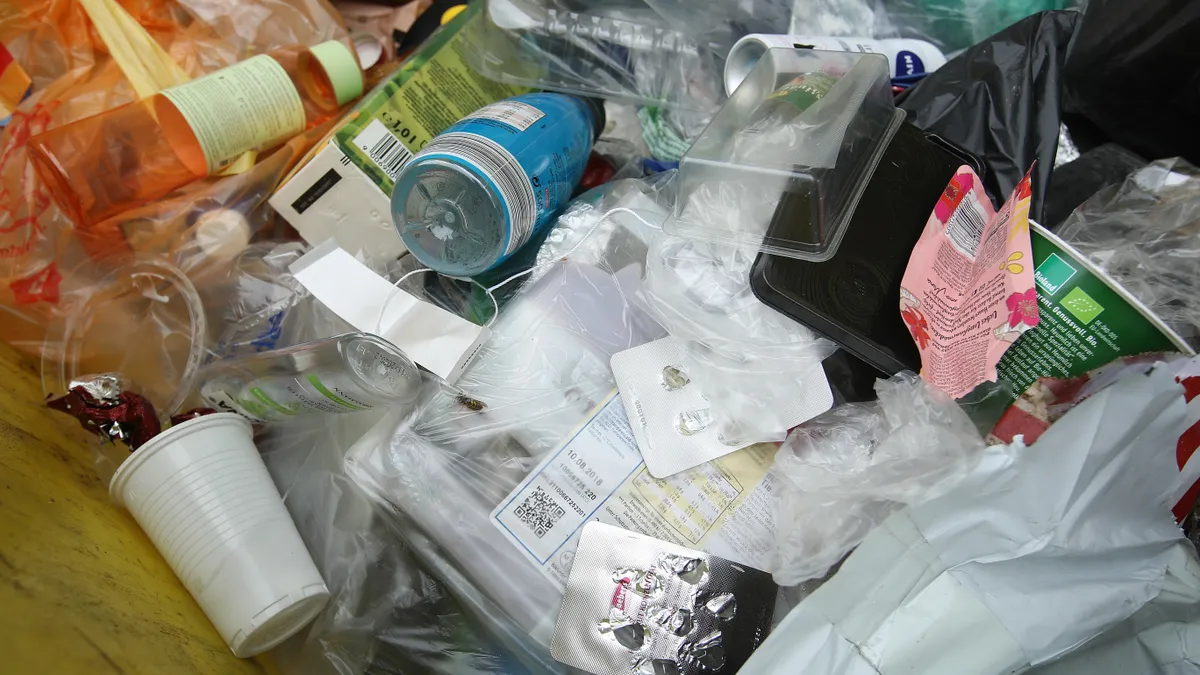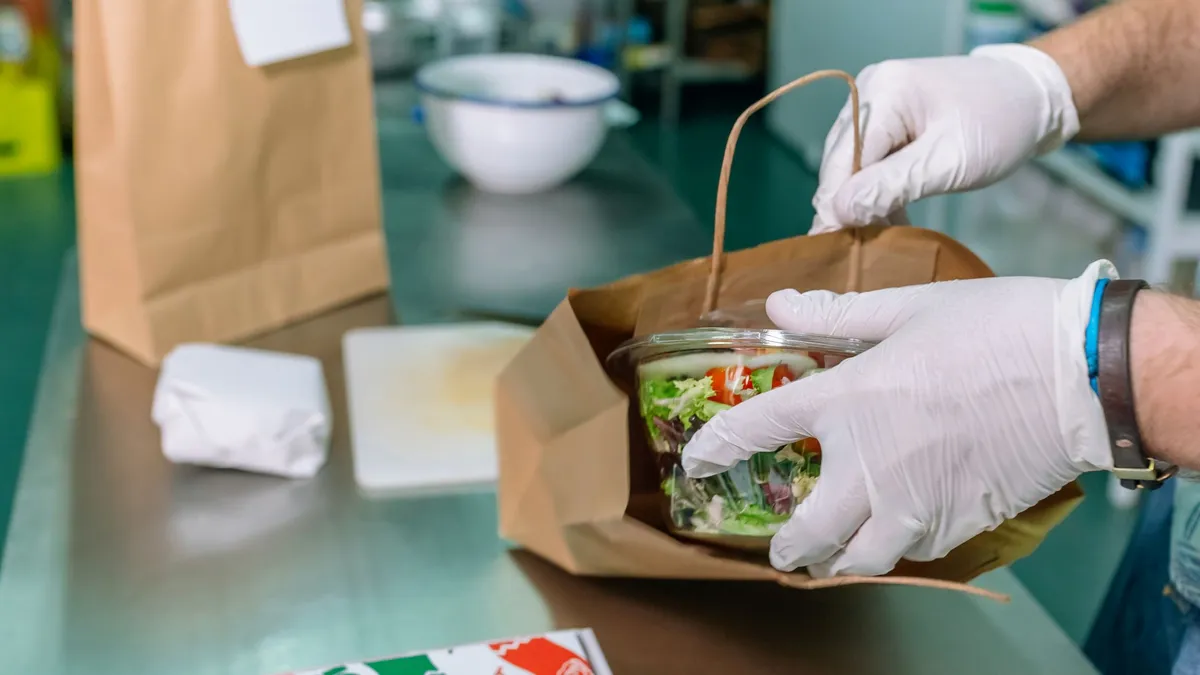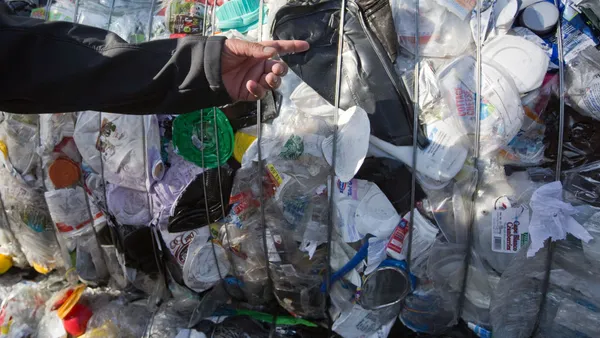An extended producer responsibility for packaging bill in Maryland has passed both the state Senate and the House — now with significant amendments that require the state to undergo a key needs assessment before hammering out details of how a program would operate.
The amendments garnered support from recycling groups and other policy stakeholders.
The House passed SB 222 on Monday. Previous versions of the bill spelled out details of how the EPR for packaging program would be run, but amendments from a House committee deleted most of those details. The bill must now go back to the Senate to accept the amendments before it heads to Democratic Gov. Wes Moore. The legislative session adjourns on April 10.
The amended bill now calls for establishing an advisory council and requiring the Maryland Department of the Environment to hire an independent consultant to conduct a statewide recycling needs assessment. The assessment must cover details of the state’s current solid waste and recycling systems, including its infrastructure and capacity, as well as key costs and revenues. It must also determine disposal and recycling methods by material type and amount, as well as estimate how many materials are currently not being recycled, according to the amendment.
Proponents of the amendment said the state must have a clear picture of its recycling and waste management systems before trying to write EPR rules.
“The framework of an EPR program is critical to its success and, if not properly created and implemented, can result in upending existing recycling systems by creating duplicative and unnecessary programs,” wrote members of the Maryland-Delaware Solid Waste Association, a chapter of the National Waste & Recycling Association.
MDE would need to submit the assessment to the governor and general assembly by April 1, 2025, and the advisory council would submit its findings and recommendations on a proposed EPR plan by Dec. 1, 2025.
Peter Houstle, executive director of the Maryland Recycling Network, called the needs assessment an “absolutely necessary” amendment, saying in written testimony that the approach “will provide thorough knowledge of the existing state of recycling in Maryland along with an understanding of additional needed infrastructure and funding requirements.” That information will allow the legislature to approve an EPR program that effectively helps fund local government recycling programs, he wrote.
It’s unclear how many details from previous versions of the EPR bill will appear in the advisory council’s future proposal. Some stakeholders had numerous concerns with how the bill had previously structured the program, particularly how it outlined performance standards.
Peter Blair, policy director of Just Zero, said in an email that the bill “didn’t set any minimum recycling rates, post-consumer recycled content requirements, reuse requirements, or meaningful packaging reduction requirements. It left all of that up to the industry.”
The bill had previously called on packaging companies to set a 25% packaging reduction requirement, but “there was not sufficient detail to understand how reduction would be measured,” Blair said.
Scott DeFife, president of the Glass Packaging Institute, also testified he was concerned with “the absence of any quality standards, goals, or requirements” in SB 222 and said the bill would have relied too heavily on existing recycling systems managed by local governments.
Previous versions of the bill also had called for allowing the producer responsibility organization to create a beverage container deposit program alongside the EPR program, but that language was deleted in later versions. DeFife said creating a bottle bill in tandem with EPR for packaging would have strengthened the state’s overall recycling system.
The bill did have its share of supporters — including environmental groups, the Maryland Municipal League and Baltimore and Howard counties — who saw it as a way to improve recycling systems and shift costs from local governments to producers.
The Product Stewardship Institute applauded the bill’s proposed reimbursement structure for municipalities, which CEO Scott Cassel said would have included reimbursing them for up to to 50% of collection costs and the full cost of transporting and processing packaging materials.
Ameripen also supported the bill, testifying that it created “a collaborative approach between all packaging value chain stakeholders to help design, run and participate in modernized recovery and processing solutions.”
















